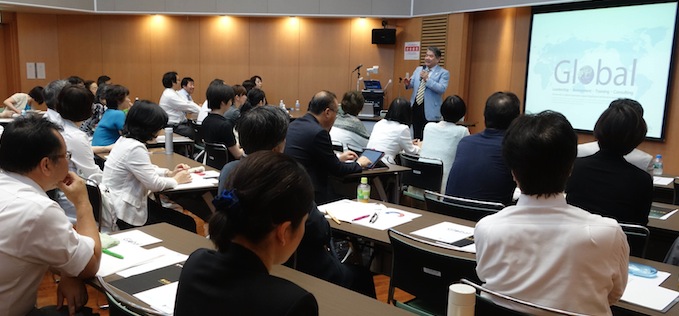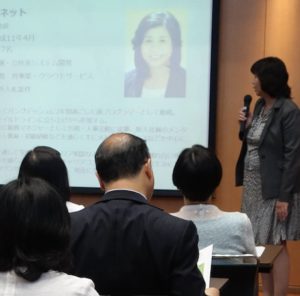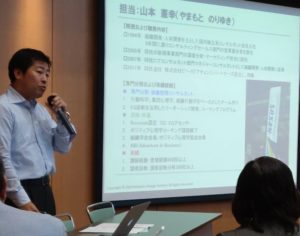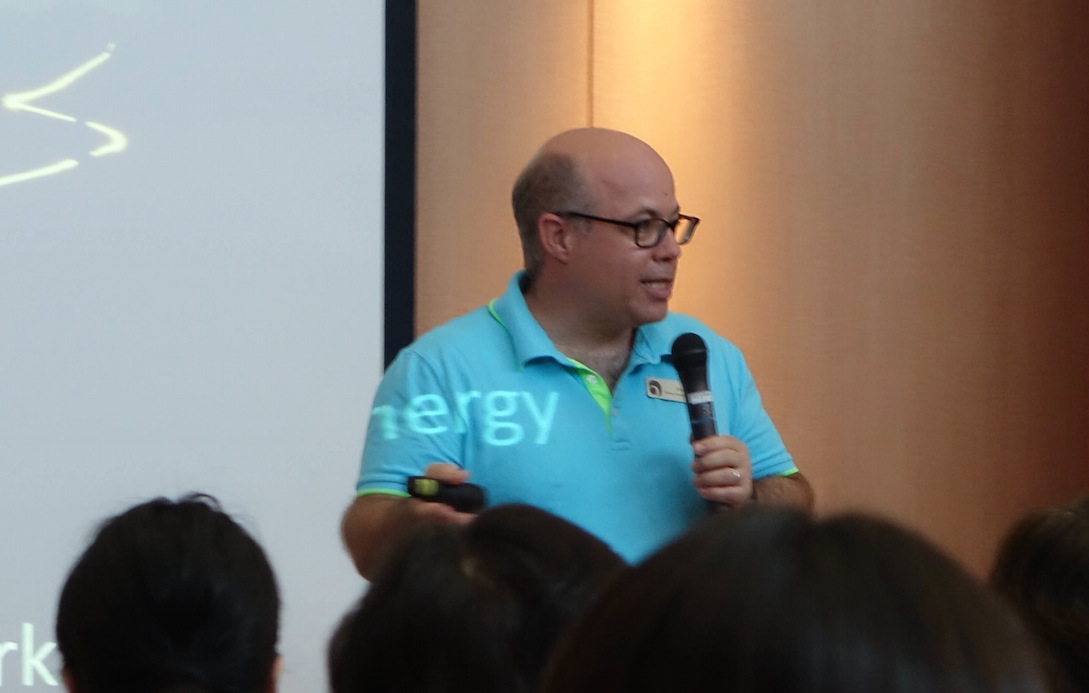A sold-out crowd at the EQ Conference in Tokyo celebrated the power of emotional intelligence as a driver of positive change. One core message of the event: As we’re working to create economic vitality, we need also to re-invigorate the “people-side” as well. EQ provides a structure to do this in way that’s both practical and scientific.
The program included two keynotes about the current status of EQ and its role in revitalizing the economy and human experience. There were three cases with powerful examples of EQ creating positive change — and improving the bottom line. A few highlights:

EQ in Japan Today
Tanabe Yasuhiro, the Regional Network Director for Six Seconds in Japan, presented this keynote including some surprising data. The common assumption in Japan is that feelings of “stagnation” are more frequently among rural, older, and female workers. However, the data shows that the biggest “dip” in key indicators is actually among 30-40 year old male managers.
The latest data on EQ in Japan, based on analysis of 6066 people, shows that emotional intelligence is predicting 55% of the variation in key performance outcomes (influence + decision-making + effectiveness + quality of life + relationships + health). Further, there are dramatic increases in EQ among older vs younger respondents — and more senior managers.
From Stagnation to Vitality
The keynote from Joshua Freedman, Six Seconds’ global CEO, focused on the role of emotion as a catalyst for positive change. Three key points:
- Economic growth requires human vitality — and emotions are a source.
- Increasing complexity and challenge demands increased emotional competence.
- Looking at the 18 “talents for the future,” today Japan’s highest scores are related to awareness. Unfortunately the 3 lowest scoring talents are related to action (e.g., prioritizing and entrepreneurship) — developing specific EQ competencies will help this.
 Case: Improving Retention at Zenet, from 76%->100%
Case: Improving Retention at Zenet, from 76%->100%
By Ms. Yotsumoto.
Six EQ training sessions of 1-2 days were delivered to new employees, with a focus on understanding and using their EQ strengths. Mentors, managers, and other staff members were also trained to understand EQ and how to focus on strengths.
Result: In the past, the average employee retention was 76%; in this cohort 100% of new hires stayed in the company with high satisfaction.
Case: Integrating a New Executive Team
By Mr. Yamamoto, Behavior Change Partners.
Following a merger, the executive team was a mix of people from two previous companies. Using the Team Vital Signs Assessment, the team developed increased awareness of their relationships. Next, each executive received individual EQ coaching to develop specific skills to improve the team.
Result: The team developed a positive mood, and much stronger collaboration.
 Case: Create Vital Leadership
Case: Create Vital Leadership
By Mr. Yamamoto, Behavior Change Partners.
In a company focused on food distribution, 20 leaders were evaluated with the Leadership Vital Signs, and each person received individual coaching. In many cases, leaders over-evaluated their performance, compared to evaluations by others; the company perceived that these leaders frequently had lower performance in the corporate evaluation process.
Result: The “wake up call” of seeing feedback created readiness for change.
Putting Emotional Intelligence Into Action
Participants found the conference to be an effective blend of practical and inspirational, and walked out ready for action.
Conference participants said:
- I felt as if there’s a very dark night, and suddenly a path is visible.
- I reconfirmed that change starts with myself.
- I have to listen to my inner voice, and this will ignite my energy for positive change.
- I want to find an “EQ chili pepper” to fuel my own energy.
Additional key take-aways from participants:
- Actions are influenced by emotions.
- Emotions are signals, or information — not something “good” or “bad.”
- I will be able to use these ideas in my workplace to create new awareness.
- In this complex and stressed world, we need more EQ!
Latest posts by Six Seconds (see all)
- Enhance Emotional Literacy - July 13, 2023
- Plutchik’s Wheel of Emotions: Feelings Wheel - March 13, 2022
- Technology Loneliness: EQ Tips from Daniel Goleman - October 24, 2020


This is such a timely and useful article. I am about to go to Japan to deliver workshops on effective middle leadership in schools and my key area is EQ. I don’t know how many teachers will be aware of the relevance of Emotional Intelligence and leadership, and this workshop will introduce them to the concept and how it is used in leadership and the facilitation of leadership. Thanks for giving me a reference to show them.